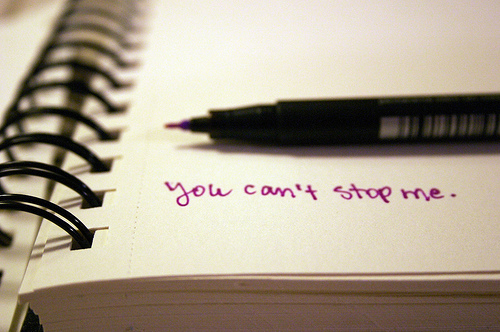
That’s right, people, I can do a book review, because I finally finished a book!
I bought How Fiction Works by James Wood from Shakespeare & Co Booksellers on Broadway in New York City. My friend Kate and I stumbled upon it when going for a walk around the Village one night, and ended up spending ages there just looking at the amazing array of books. It’s one of the best bookshops I’ve been to.
I love bookshops. They’re my happy place. Which is seems slightly absurd now, considering how little I read and the anxiety that causes me, but I find them such a calming place. When I was stressed out doing my masters thesis, the two places that I knew would bring me peace and calm was either making my then boyfriend drive me to the pet store so I could go and look at the puppies – they always made me forget my worries – or otherwise going to the University Bookshop. I could just wander around it for hours, looking at books, enjoying the quiet. Bookshops just feel like knowledge in a bottle. It’s all just sitting there waiting for you to drink it in.
There’s just something beautiful and familiar about a bookshop for me, and I’ve realized that I gravitate towards them when I travel. Thinking about my trip to New York and surrounds, we ended up in bookshops a lot – we ate dinner at a bookshop twice in Washington DC, we had coffee and cake at a bookshop in Boston each night we were there, we had coffee and cake in another bookshop in Georgetown. (It seems like there’s often eating involved with the books). And I can vividly remember spending a long time in a bookshop in Kota Kinabalu in Borneo when I was there. I’m heading to Blenheim this weekend and if it weren’t for the fact that I’m arriving after lunchtime on Saturday, and therefore outside of opening hours in Blenheim, I would head along to my favourite little bookshop there, just to wander amongst the books and see what they’re displaying and promoting as their recommended books of the moment.

James Wood is widely considered to be one of, if not the best book critic of his generation. He currently writes for The New Yorker, and before that wrote for The New Republic. He is also a professor of English at Harvard University, so his credentials for explaining how fiction works are impeccable.
I really enjoyed how this book was set out. I’d read in some reviews that it made the argument of the book weaker, but to me it was one of the book’s strengths. It’s set out in large chapters, but within those there are shorter sections, and some of them are incredibly short, as in half a page. No doubt it’s because of my increasingly miniscule attention span that I enjoyed this set-up. It was like the book was cut into bite-size pieces. It was particularly helpful for a book of this nature, for while it’s certainly written for a popular audience, it is still quite literary and academic in nature, so with these short sections, you don’t get bogged down in terminology.
What I will take away from this book is not so much that I now know ‘how fiction works’ – although I do know more about the basic elements that go into fiction writing, styles of narrative etc – but the unadulterated joy that Wood takes in close reading. This book made me excited to read again. It made me want to go back and reread some novelists that I love, like Zadie Smith or Michael Ondaatje, for their ability to just completely encapsulate the nature of a person in a few sentences or to describe the world in language so beautiful that it makes you look at it the mundane wonder.
There are some authors that just seem to have the ability to so perfectly explain something you have felt or someone you know or some characteristic of life. Wood explains it thus “And in our own reading lives, every day, we come across that blue river of truth, curling somewhere; we encounter scenes and moments and perfectly placed words in fiction and poetry, in film and drama, which strike us with their truth, which move and sustain us, which shake habit’s house to its foundations.” (244)

It’s that ability of fiction to make one sympathise with others, to understand their motivations and to see the world through different eyes that Wood posits is one the art form’s major strengths. He rages against the ‘contagion of moral niceness’ that sees readers and reviewers complain about being expected to identify with unsavoury characters, arguing that the very nature of literature encourages readers to move beyond their own experience and that this is a “moral and sympathetic education of its own kind”.
On the cover of the book, a Time reviewer is quoted saying ‘The pleasure of the book lies in watching Wood read.” That pleasure and enthusiasm Wood feels (he’s a liberal user of the exclamation mark) is infectious and it made me excited to read again, to revel in the beauty of language and to cherish that knowledge we gain from seeing ourselves and our world reflected in that blue river of truth.




